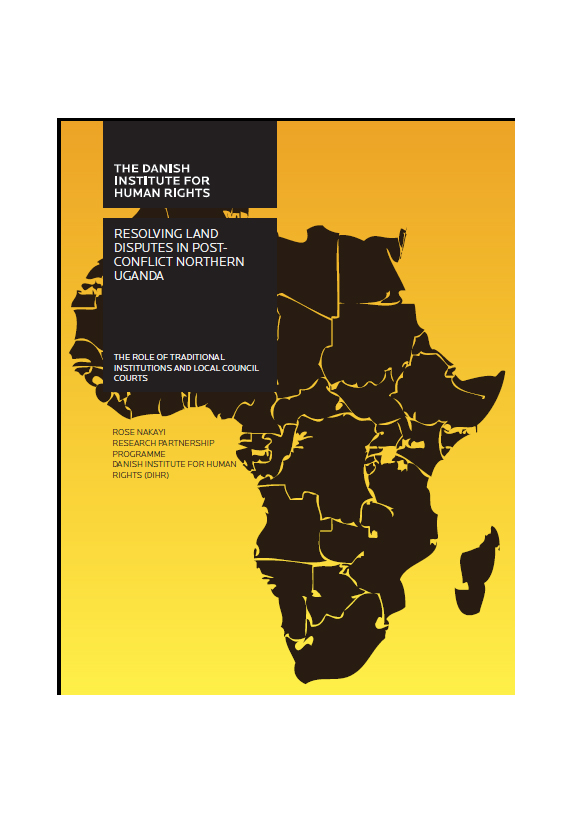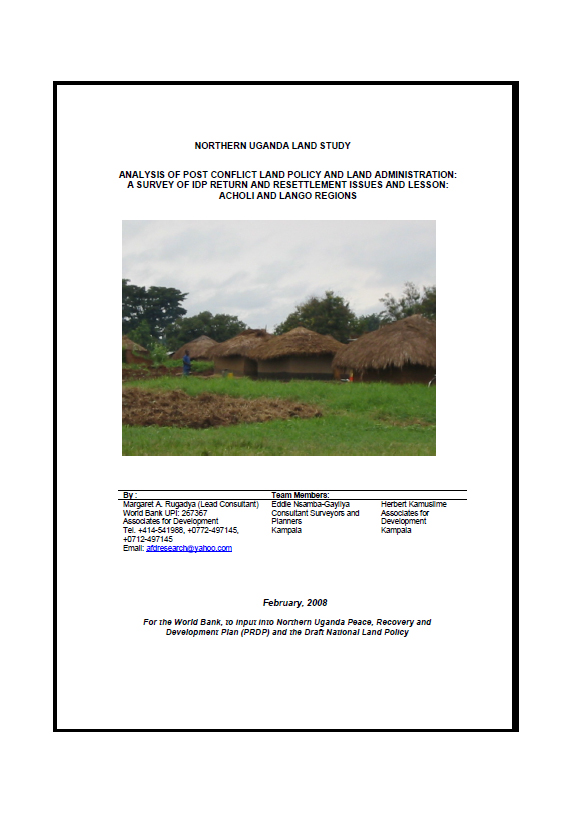
Topics and Regions
Advocates Coalition for Development and Environment (ACODE) is an independent public policy research and advocacy think tank based in Uganda working in East and Southern Africa. ACODE was first registered in 1999 as a Non-governmental organization (NGO). In 2004, the organization was incorporated as a company limited by guarantee and without having a share capital. ACODE is one of the most dynamic and robust regional leaders in cutting-edge public policy research and analysis in a range of areas including governance, trade, environment, and science and technology. ACODE has, for the last four consecutive years, been ranked in the Global Go To Think Tank Index as one of the best think tanks in Uganda and one of the top think tanks in the world. Think Tanks in Africa continue to play a major role in policy development and implementation. The Advocates Coalition for Development and Environment (ACODE) has been ranked 23 out of 92 Top Think Tanks in Sub-Saharan Africa and 29 out of 90 globally with Best Advocacy Campaign in the 2015 Global Go To Think Tank Index Report (TTI), led by the University of Pennsylvania through its Think Tanks and Civil Societies Program (TTCSP).
ACODE is non-partisan and independent and therefore does not align with any political party or political organisation. However, given the direct relationship between development policy and politics, we believe that our work is political and it must stand for certain political causes of a bi-partisan nature. Such causes are legitimate issues of research interest so long as they are defined on the basis of constitutionalism, the rule of law as well as national and regional interests as expressed in the relevant treaties, strategy documents and declarations. ACODE's work is based on three broad programmes areas: Environmental Democracy, Peace and Democracy, and Innovation and Biotechnology Policy. Our core business is to undertake advocacy-driven public policy research and analysis on contemporary and emerging public policy and governance issues that have a significant impact on national development.
Details
Location
Contributions
Displaying 21 - 30 of 52The New Forests Company and its Uganda plantations
London-based New Forests Company (NFC) would seem to be the design blueprint of how a young modern company should conduct a major land investment in Africa in a responsible way. Oxfam’s investigations reveal that serious allegations by people who were evicted from land to make way for NFC’s operations remain unresolved. How will the company respond?
Identification of Good Practices in Land Conflict Resolution in Acholi
Conflict associated with land has increased substantially following the return of peace to the Acholi Region with the return of internally displaced people (IDP), population growth, and increases in the value of land. The area is heavily dependent on agriculture and conflict related to land access seriously threatens to undermine development and the social, political and economic stability of the Acholi Region. This study involved community members, key informants, and statutory and traditional leaders in three sub counties in each of the seven Acholi districts.
Land or Else
Northern Uganda is the scene of one of the world’s most volatile and spontaneous processes of reintegration. There are approximately 1.1 to 1.4 million people in the Acholi sub-region at the time of writing3 ; 295,000 internally-displaced persons (IDPs) remain displaced either in IDP camps or transit sites. Approximately 800,000 Acholis have already left the camps and spontaneously returned home over the last three years.
COMMUNITY LAND JUSTICE IN UGANDA
Uganda’s northern region was traditionally inhabited by communities with predominantly pastoral lifestyles. As the country began developing administrative structures in the region, most clans found themselves settled into agro-pastoral communities. The elders found it imperative to demarcate areas of land to fit different uses, with areas for family settlement and cultivation clearly separated from other areas for communal use. Land was either demarcated by the leaders of a particular settlement or by the dominant clan for the benefit of everyone else in that area.
RESOLVING LAND DISPUTES IN POST-CONFLICT NORTHERN UGANDA
Post-conflict northern Uganda has witnessed an increase in disputes over land. This has, to a great extent, been as a result of the armed conflict and its aftermath. Beyond that, other chaotic factors embedded in various social, legal, economic, and political aspects of this society have influenced the nature, gravity, and dynamics of these disputes and the way in which Traditional Institutions and the Local Council Courts have attempted to resolve them.
ANALYSIS OF POST CONFLICT LAND POLICY AND LAND ADMINISTRATION
This is the second in a series of land studies for northern Uganda, whose core objective is to inform the Plan for Recovery and Development of Northern Uganda (PRDP) and the National Land Policy. It builds on the work of the first phase conducted in Teso region to present a more quantitative analysis of trends on disputes and claims on land before displacement, during displacement and emerging trends or occurrences on return for Acholi and Lango sub-regions.
LAND TENURE AND ITS IMPACTS ON FOOD SECURITY IN UGANDA
The need to establish the link between land tenure and food security is increasingly gaining currency as governments and development organizations refocus their effort towards assisting farmers to move away from subsistence farming to commercial agriculture. It is argued that given how land plays a crucial role in the livelihoods of most Africans, food security and poverty reduction cannot be achieved unless issues of access to land, security of tenure and the capacity to use land productively and in a sustainable manner are addressed.
The Dynamics of Social Capital and Conflict Management in Multiple Resource Regimes
Increasingly, social capital, defined as shared norms, trust, and the horizontal and vertical social networks that facilitate coordination and cooperation for mutually beneficial collective action, is seen as an important asset upon which people rely to manage natural resources and resolve conflicts. This paper uses empirical data from households and community surveys and case studies, to examine the role, strengths, and limits of social capital in managing conflicts over the use and management of natural resources.
Power and Vulnerability Land Dispute Resolution
Unfolding analysis reveals two types of land disputes prevalent in postwar northern Uganda: cases that involve a legitimate cause of action and those that do not.1 Since mediation and alternative forms of dispute resolution rely on parties’ willingness to negotiate in good faith, cases featuring ‘bad faith’ and land grabbing—where powerful parties intentionally exploit another person’s vulnerability in order to illegally2 claim land—pose a serious challenge for local land dispute mediators. Such mediators must wrestle with whether and how to remain neutral in the face of injustice.
Understanding changing land access issues for the rural poor in Uganda
The ways in which people obtain land in Uganda are changing fast. Land that used to be secured through inheritance, gifts or proof of long-term occupancy is now more commonly changing hands in the market. Those with wealth and powerful connections are frequently able to override local rules and gain access to land at the expense of poorer individuals. Government-backed agribusiness investors receive large areas of land with benefits for some local farmers who are able to participate in the schemes, while other smallholders see their land access and livelihoods degraded.







